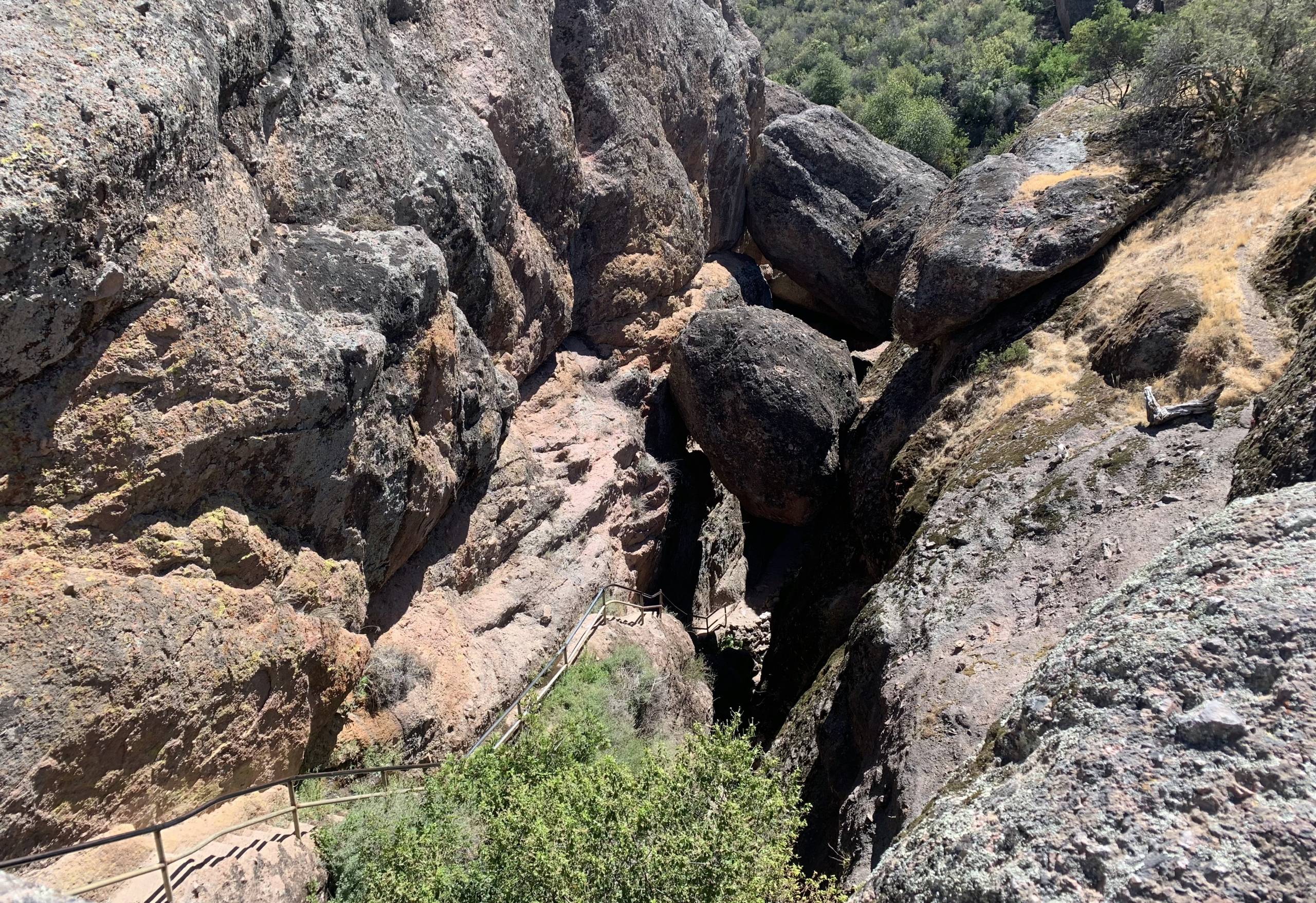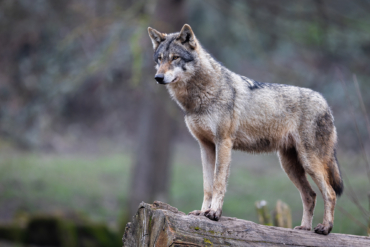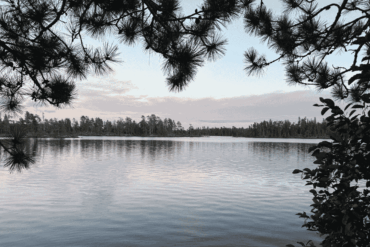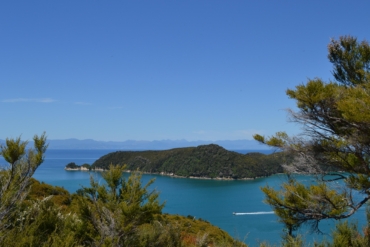While the Pinnacles’ volcanic formations have been around for 23 million years, this national park wasn’t founded until 2013. As it’s new to many of us, here’s what you’ll want to see if you go.
California is big, and it has a total of nine National Parks. Parks like Yosemite and Joshua Tree are a no-brainer for climbers, while Death Valley presents a great choice for cyclists and road trippers traveling through in the shoulder seasons. But Pinnacles National Park? It’s young, and many might not have heard of it yet.
Our editor took a stroll through the park — west to east and north to south — to find the best hikes (and a few other gems) it has to offer.
The 5 Best Hikes in Pinnacles National Park
1. Bear Gulch Cave Trail

This trail is short and relatively easy, though I was pleasantly surprised by the varying terrain. It’s made up of wider flat trails, caves, switchbacks, some steeper climbing, rocky sections, and a staircase.
Though there’s not a lot of mileage, it’s still a great trail. And when you reach the end, you’ll see a lot more views of what Pinnacles is known for, as the bigger rock formations are all further toward the center of the park.
Also, don’t miss the reservoir, which offers an especially great view at sunrise and sunset. And it’s home to a protected colony of California red-legged frogs.
The Bear Gulch caves in Pinnacles are home to the largest maternal colony of Townsend’s big-eared bats, a protected species, between Northern California and Mexico. Due to this, the caves are closed from mid-May through Mid-July while the bats raise their young, so plan accordingly!
Length: About 2 miles roundtrip from the Bear Gulch Nature Center, or 3.5 miles roundtrip from Manzanita Parking area (east side)
Difficulty: Moderate
2. High Peaks Trail

This is one of the most central trails in the park. It’s also one of the longer, more difficult trails, winding along exposed ridgelines and offering steep climbs with sweeping views of several different rock formations.
In addition to more strenuous hiking, High Peaks offers lots of views of wildflowers and various bird species, including condors. This route also has lots of options for smaller or larger loops by connecting other trails. Some like to hike this clockwise, some counterclockwise — it’s totally personal preference.
Note: If you want to save your knees, or if you have vertigo, skip the steep and narrow section.
Length: 4.7-mile loop, with High Peaks steep section included
Difficulty: Moderate to difficult
3. The Balconies
The Balconies are one of the major features of Pinnacles National Park. Starting at the main Chaparral parking area, the trail is an easy 0.6-mile climb. At the fork, it splits into the trails for the caves (closed seasonally) or the Balconies cliffs trail.
Definitely check out the cliffs, as you’ll get lots of close-up views of the sheer volcanic rock formations. Note: This trail more commonly starts at the west entrance, although you can reach it from the east via the Blue Oak Trail.
Length: 1.4 miles one way, or a 2-mile round trip for Balconies Caves trail section
Difficulty: Moderate
4. Blue Oak Trail
The Blue Oak Trail starts at a parking area on the east side of the park. While it isn’t right in the middle of the rock formations in the center of Pinnacles, it does offer great vistas of the surrounding areas. It has a few rocky sections, but the majority of the trail is a mild climb.
You can continue onto High Peaks or pop off to the south for a great viewpoint. Going to the viewpoint adds about a mile.
Length: 2.0 miles
Difficulty: Moderate
5. Old Pinnacles

In terms of terrain, this trail is definitely a milder choice, with longer flat dirt and gravel sections as well as a few bridge crossings. The trail climbs up moderately below the ridge of some of the park’s northern ridges.
If you are looking to add more mileage, you can connect this and the Balconies trails, hiking the entire park east to west or west to east.
Length: 2.0 miles from the Old Pinnacles Parking Area
Difficulty: Easy to moderate
Rock Climbing in Pinnacles National Park
For the size of this park, there’s lots of climbing. The majority of the park is sport and trad routes, and climbing is accessible from both the west and east entrances.
Routes range in difficulty from 5.6 to 5.12 grades. The rock here is a chossy, volcanic breccia, and we noticed several sketchier, runout routes. If you go, be sure to check out the east face of Monolith Rock, Discovery Wall, and the Balconies.

There’s a permit required, so be sure to check the national park site and register when you arrive. It’s known to be a fairly popular spot for the Bay Area climbing community, although it wasn’t remotely crowded when we scoped it out.
If you are planning to visit Pinnacles, climbing is another great way to explore the park’s rock formations.









